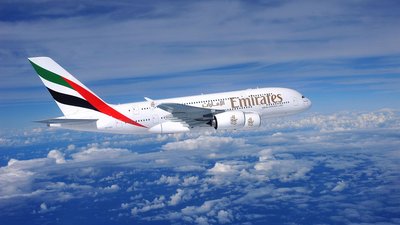
A marked reduction in passenger flights to China means that belly-hold space is in tight supply following the outbreak of the respiratory coronavirus, which has continued to claim more lives and rapidly infect more victims.
Millions of Chinese in Wuhan and other cities have effectively been placed under regional quarantine, providing further impetus for shelving flights.
Lufthansa Group suspended Lufthansa, SWISS and Austrian Airlines flights to Beijing and Shanghai until February 28 after initially slashing flights until February 9. The cities of Nanjing, Shenyang and Qingdao will not be served by passenger aircraft until March 28, while flight operations through Hong Kong will continue as planned, it said, reported American Shipper.
"Lufthansa Cargo plans to maintain connections to and from mainland China with cargo aircraft as long as possible," the company said in a notice to customers.
One of the wild cards for continued operation of all-cargo aircraft is whether pilots and crews will be willing to fly into the epicentre of the global health emergency. Lufthansa Cargo acknowledged that is a concern and that future flights are also subject to government restrictions.
The shrinking of passenger belly-hold capacity, in theory, creates more opportunity for all-cargo airlines, but that assumes a steady state of demand from shippers. Shipping volumes were low already because Chinese authorities have extended the Lunar New Year holiday period through to February 9 in key manufacturing provinces in an effort to control the outbreak.
How much freight there is for export will depend on the extent to which factories are open and whether people can get to work if public transportation is shut down. Outbound and inbound freight will also be impacted by the availability of logistics workers and truckers to process shipments and deliver them to and from aircraft.
Freight aircraft carry 70 per cent of North American air imports from China. The reduction in passenger capacity would normally impact shipping rates, but that is less likely now, given the low level of demand, industry experts say.
The virus has not had a material impact on UPS's business so far, spokesman Jim Mayer said in an email. "We are closely monitoring the situation and, should the need arise, our contingency plans can be put in place to minimise disruption to our network and ensure shipments arrive at their final destinations as soon as conditions permit."
UPS crews are being provided particulate-filtering respirator masks and hand-sanitising gel, as well as advice on how to help prevent contracting infectious diseases and what to do should they exhibit any symptoms, he said.
The European Union Aviation Safety Agency is urging carriers to make sure they have sufficient potable water in water tanks prior to departure, a sufficient number of gloves available onboard and disinfectant gel available for the crew, and that when on the ground with passengers aboard, the maximum time without air conditioning/ventilation is under 30 minutes.
Meanwhile, the US government is now funnelling all passenger flights carrying individuals who have travelled to China within 14 days of arrival to one of 11 designated airports where resources are available for enhanced screening procedures to identify potential sick travellers.
Source:transportweekly
The opinions expressed herein are the author's and not necessarily those of The OLO News.
Quality Companies